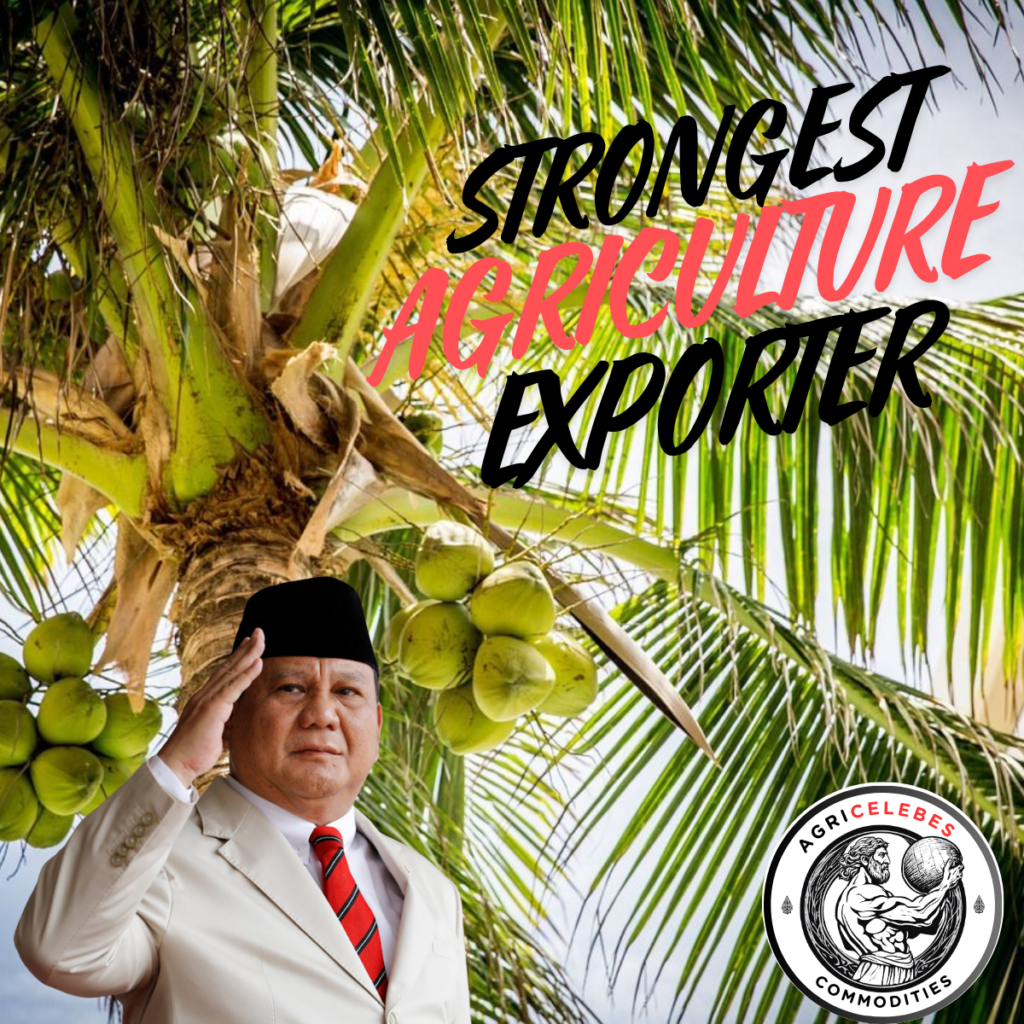Indonesia is renowned for being the world’s largest producer of coconuts, a position that has significant economic, cultural, and environmental impacts. The coconut, often called the “tree of life,” is integral to Indonesia’s agricultural sector and plays a pivotal role in global markets. This article delves into the importance of Indonesia’s coconut industry, the benefits of coconut products, and the country’s strides in sustainable practices.
1. The Backbone of the Indonesian Economy
Coconuts are vital to Indonesia’s economy, particularly for rural communities where coconut farming provides a primary source of income. The tropical climate, fertile soil, and extensive coastlines create the perfect conditions for growing high-quality coconuts. As a result, Indonesia has become the top exporter of coconut products, including:
- Coconut Oil: Used in cooking, skincare, and various industrial applications.
- Coconut Milk and Cream: Essential ingredients in both local and international cuisine.
- Coconut Charcoal: A sustainable fuel source for grilling and shisha, known for its long burn time and low ash content.
- Coconut Water: A refreshing and hydrating beverage that has gained popularity for its natural electrolytes.
2. Diverse Coconut Products and Their Benefits
Indonesia’s coconut production isn’t just about the raw fruit; it’s about maximizing every part of the coconut tree. Here’s how different parts of the coconut are utilized:
- Coconut Shells: Used to make activated carbon and coconut charcoal briquettes. These products are valued for their eco-friendliness and efficiency, providing a cleaner burn than traditional charcoal.
- Coconut Husk: Processed into coir, a natural fiber used in making ropes, mats, and eco-friendly gardening products.
- Coconut Meat: Extracted to produce coconut oil, desiccated coconut, and coconut milk. These products are staples in many cuisines and offer health benefits due to their natural fats and nutrients.
3. Sustainability at the Core
One of the most appealing aspects of Indonesia’s coconut industry is its commitment to sustainability. Coconut trees not only provide renewable resources but also contribute to carbon sequestration, helping combat climate change. Here’s how the industry emphasizes sustainability:
- Zero Waste Philosophy: Every part of the coconut is used, from the oil-rich meat to the fibrous husk. This minimizes waste and maximizes the economic value of each tree.
- Renewable and Organic Practices: Many Indonesian farmers use traditional, organic farming methods that have been passed down through generations, ensuring minimal environmental impact.
- Community Empowerment: The coconut industry provides job opportunities, supports local economies, and helps lift communities out of poverty. Investments in training programs and cooperative models promote sustainable farming and fair wages.
4. The Growing Demand for Coconut Products
As the world becomes more health-conscious and environmentally aware, the demand for natural and sustainable products continues to rise. Indonesia’s coconut products are positioned perfectly to meet these global trends:
- Health and Wellness: Coconut products are celebrated for their nutritional benefits. Coconut oil, for example, contains medium-chain triglycerides (MCTs) that are linked to improved metabolism and brain health. Coconut water is another popular product, known for its hydration properties.
- Eco-Friendly Energy Sources: Coconut shell charcoal is a sought-after product in the global market, particularly in Europe and the Middle East, for shisha and barbeque use. It’s preferred for its long burning time, low smoke, and clean combustion.
- Sustainable Packaging: The industry is also exploring innovative uses of coconut byproducts to create biodegradable packaging and eco-friendly alternatives to synthetic materials.
5. Challenges and Opportunities
While Indonesia’s coconut industry has many strengths, it also faces challenges such as fluctuating global demand and competition from other coconut-producing countries. To stay competitive, Indonesia has been investing in modern processing facilities and research to improve the quality and shelf life of its products. Additionally, there is a growing emphasis on promoting fair trade practices and certification to attract international buyers who prioritize ethical sourcing.
6. Why Indonesian Coconuts Are Unique
The unique qualities of Indonesian coconuts come from the ideal climate and traditional farming techniques. These coconuts have high oil content and are known for their robust flavor, making them highly desirable in the production of coconut oil and food products. The country’s strategic location also aids in efficient export logistics to major markets in Asia, Europe, and North America.
Conclusion
Indonesia’s coconut industry is more than just an agricultural enterprise; it’s a testament to the country’s innovation, sustainability, and economic resilience. The diverse range of coconut-based products, combined with an emphasis on eco-friendly practices, positions Indonesia as a leader in the global market. As the world continues to seek natural, sustainable, and health-conscious products, the future of Indonesia’s coconut industry looks bright and promising.



Start earning instantly—become our affiliate and earn on every sale! https://shorturl.fm/Hfswz
Grow your income stream—apply to our affiliate program today! https://shorturl.fm/lgc4D
Drive sales, earn commissions—apply now! https://shorturl.fm/SkOXX
Promote, refer, earn—join our affiliate program now! https://shorturl.fm/NyQ1m
Get started instantly—earn on every referral you make! https://shorturl.fm/HkFkb
Start earning on autopilot—become our affiliate partner! https://shorturl.fm/iQbxM
Boost your income—enroll in our affiliate program today! https://shorturl.fm/JIRe7
https://shorturl.fm/NYMuN
https://shorturl.fm/plSeC
https://shorturl.fm/5pPd8
https://shorturl.fm/J6RVB
https://shorturl.fm/JxEzb
https://shorturl.fm/V8BMx
https://shorturl.fm/LrMOE
https://shorturl.fm/rzRud
https://shorturl.fm/TbGHM
https://shorturl.fm/PNRT3
https://shorturl.fm/59cLY
https://shorturl.fm/jyeZV
https://shorturl.fm/WBVYZ
https://shorturl.fm/5i8Mn
https://shorturl.fm/mondC
https://shorturl.fm/Rrfct
https://shorturl.fm/wTOiX
https://shorturl.fm/quq0V
https://shorturl.fm/j2wI7
https://shorturl.fm/K7IUd
https://shorturl.fm/SeIHQ
https://shorturl.fm/IslDN
https://shorturl.fm/puATw
https://shorturl.fm/lHQR1
https://shorturl.fm/6NfZ7
https://shorturl.fm/GZoTe
https://shorturl.fm/f0wUT
https://shorturl.fm/Q7gss
https://shorturl.fm/fBrcp
https://shorturl.fm/rjEIA
https://shorturl.fm/BMGht
https://shorturl.fm/2Zsdk
https://shorturl.fm/yvzwA
https://shorturl.fm/0IQvo
https://shorturl.fm/jOBgC
https://shorturl.fm/v1nhb
https://shorturl.fm/FTBkR
https://shorturl.fm/x3r1c
https://shorturl.fm/aBABt
https://shorturl.fm/kcjZT
https://shorturl.fm/sgzsn
https://shorturl.fm/NINfP
https://shorturl.fm/8k8m8
https://shorturl.fm/IpYRi
https://shorturl.fm/w55lM
https://shorturl.fm/Uocvs
https://shorturl.fm/JkzP4
https://shorturl.fm/37rkd
https://shorturl.fm/AeZAN
https://shorturl.fm/qYsfT
https://shorturl.fm/BUdAv
https://shorturl.fm/hNV5y
https://shorturl.fm/t0Bi8
https://shorturl.fm/9rMHi
https://shorturl.fm/8vI9j
https://shorturl.fm/vWfFu
https://shorturl.fm/dbBet
https://shorturl.fm/hJ1f2
https://shorturl.fm/l5Zxq
https://shorturl.fm/o7p3R
https://shorturl.fm/ymqz5
https://shorturl.fm/rBu0M
https://shorturl.fm/OzXKL
https://shorturl.fm/9FInL
https://shorturl.fm/Z5ROM
https://shorturl.fm/6a9Cn
https://shorturl.fm/SLHVh
https://shorturl.fm/IYPez
https://shorturl.fm/Z7aMP
https://shorturl.fm/JZKuA
https://shorturl.fm/8tDEO
https://shorturl.fm/qtoiM
https://shorturl.fm/XLuBP
https://shorturl.fm/NeWbV